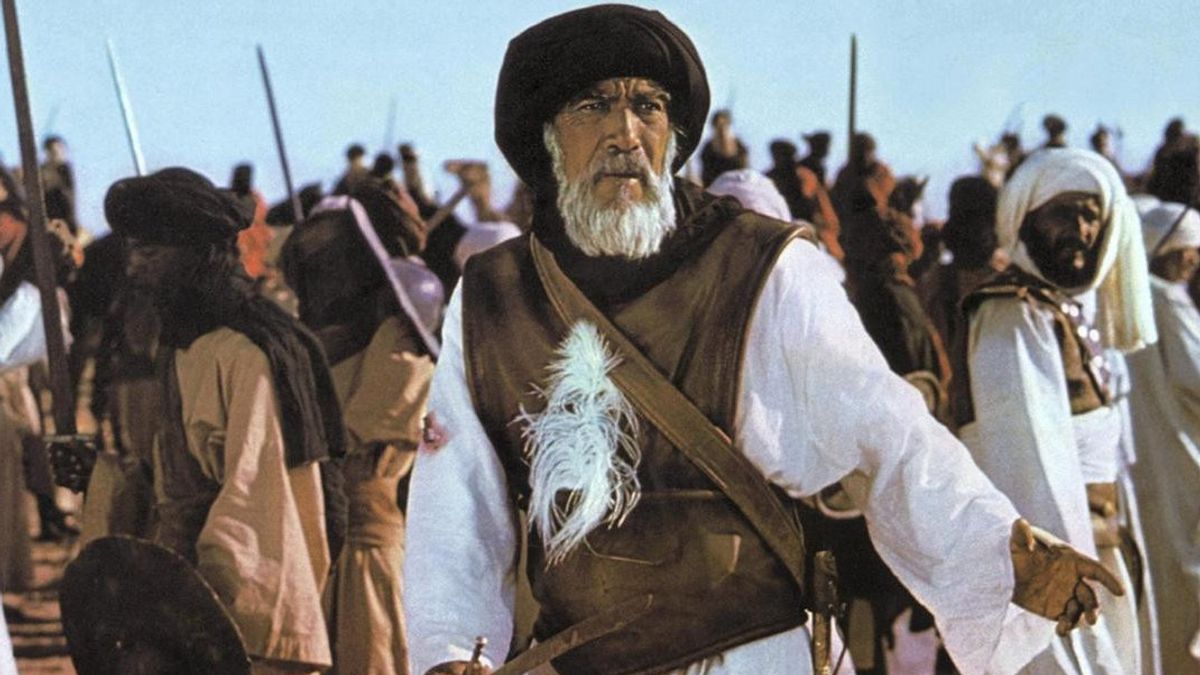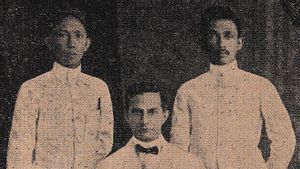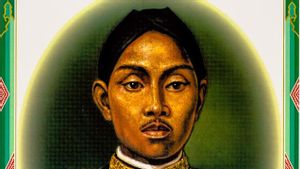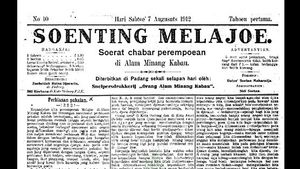JAKARTA - History today, 47 years ago, July 21, 1976, the Indonesian Ulema Council (MUI) issued a fatwa ban on the film The Message. Films that tell about the life journey of the Prophet Muhammad SAW are opposed because film owners are trying to present the figure of the Prophet.
Previously, the film by Moustapha Akkad had received opposition from everywhere. That opposition came even while it was still in the shooting process. Many Middle Eastern countries refuse to be involved in films.
Moustopha Akkad's desire to make a film about the life journey of the Prophet Muhammad SAW is unbearable. The filmmakers born in Aleppo, Syria want their films to be a means of introducing Islam to the world.
The plan to make the film received broad support. Funding comes from anywhere. From the Libyan government, Morocco, to Kuwait. Research is also carried out optimally. He doesn't want to make any films.
The move was taken so that the message in the film entitled Mohammad, Messenger of God can be digested by all audiences throughout the country. Long story short, the shooting process began to be perpetuated. Morocco was asked to take pictures.
At that time, the owner of the film tried to turn one of the villages in Morocco like Makkah, Saudi Arabia during the reign. In fact, complete with the Kaaba. The representation was carried out with full totality. The star of the film invited to join was not just any actor. From Anthony Quinn to Michael Ansara.
The problem has only arisen because many Islamic countries in the Middle East have criticized. The film's absorption is considered not to reflect the value of Islam. Moreover, many disagree with the Prophet's inauguration.
The government of Morocco then changed its intention by prohibiting the owner of the film from taking pictures in Morocco. As a result, Libya was also asked to become a new location for shooting films. Unlike Morocco, Libya through its president, Muammar Gaddafi fully supports the film.
The support bore fruit. The film, which was originally titled Mohammad, Messenger of God, became The Message. The film began to be enjoyed by world audiences since March 9, 1976.
Untunglah pemerintah Muammar Ghadaffi membantu fully kelompok besar yang membawa beton-ton alat itu. Angkatan Udara Libya, misalnya, menyediakan Hercules-nya untuk melenggarkan beban itu. Armynya menyediakan 5.000 tentara, buat adegan perang Uhud dan Badar.
The shooting was carried out in Sheba, which is surrounded by deserts -- and the facilities are fully provided by the local government. How did the Libyan government -- who are no longer good with Egypt -- at the pressure of Al Azhar and the World Mosque Council in Makkah, still have to be heard. There could be other Muslims who have different opinions about the matter, "is written Tempo Magazine report entitled Not for that Film (1976).
The Message's film shows criticism from here and there. Although not a few also praised the film. The harshest rejection emerged from the World Mosque Council based in Makkah. They even sent a letter to President Suharto to prohibit the film from being screened in Indonesia.
SEE ALSO:
The film is considered to deviate from the true nature of the story of the Prophet Muhammad. The rejection was not only echoed by the Council of the World Mosque, MUI also perpetuated the same thing. They issued a fatwa for it on July 21, 1976. MUI's attitude is clear. They reject the figure of the Prophet present in any form, both in pictures and in films.
MUI has also issued a fatwa related to a film that tells the life of the Prophet Muhammad SAW: The Message. In the decision of the MUl Fatwa Commission dated July 21, 1976, it is stated that MUI refuses to describe the figure of the Prophet Muhammad in any form, both pictures and in films.
"The Fatwa Commission, which was chaired by KH Hasan Basri, added that if there are pictures or films featuring the Prophet Muhammad or his family, then the government should prohibit the image or film circulating in Indonesia. Especially for films, which are acting or pretending, MUI based the decision on the hadis of the history of Bukhari and Muslims," said Hafidz Muftisany in the book Fikih Keseoharian: Controversy of Playing the Prophet to Pro Kon Immunization (2021).
The English, Chinese, Japanese, Arabic, and French versions are automatically generated by the AI. So there may still be inaccuracies in translating, please always see Indonesian as our main language. (system supported by DigitalSiber.id)
















